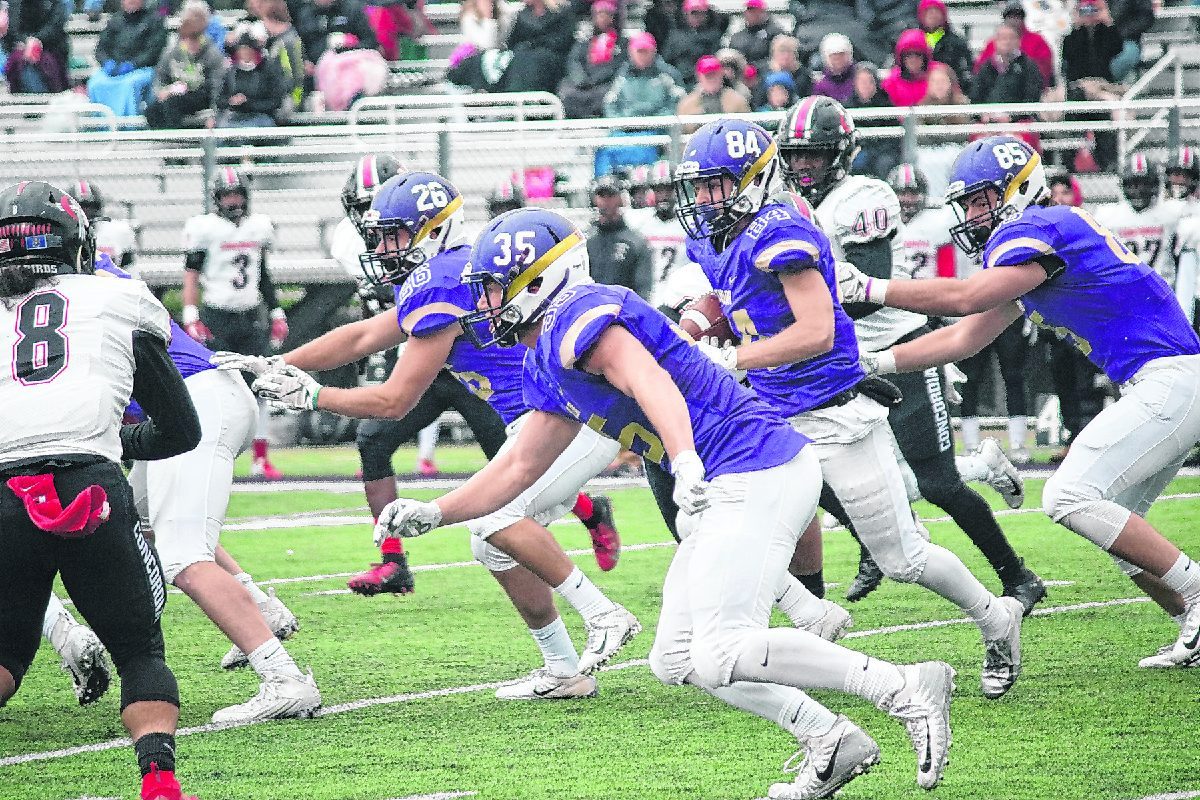<p>With college football practices starting soon, the unseen opponent is the one most players are concerned about.</p><p>The COVID-19 pandemic continues to force administrators and coaches to continually rethink the way preseason gatherings are to be conducted. Based on the frequency of changes in national health trends the past four months, today’s methods could be outdated by tomorrow.</p><p>Will they or won’t they? Should they or shouldn’t they? How many is too many?</p><p>And, of course, will there even be a football season?</p>[sc:text-divider text-divider-title="Story continues below gallery" ]<p>“The concern is that we’re going to prepare and then not be able to play,” said Tyler Watson, a former Center Grove defensive back who now plays the same position at Taylor University. “I know the coaches are doing everything to make sure we can do what we’re supposed to be doing.</p><p>“I couldn’t even tell you what it would be like to get to school and not have a season.”</p><p>Watson, who reports to practice Aug. 15 and starts his junior school year four days later, has been playing organized football every year since the second grade. Many of those playing college football can make the same claim.</p><p>To this point, there’s been no way to get a handle on when or where the coronavirus will surface or how many people it impacts.</p><p>Last week alone, the Ivy League postponed all of its fall sports, while the Big Ten and Pac-12 conference decided to trim nonconference games from all of its fall sports schedules.</p><p>The football program at three-time national champion Clemson has been hit hard by the pandemic. The Tigers had 37 players test positive for the virus before the end of June. Kansas football suspended voluntary workouts earlier this month after an increase of COVID-19 cases within the athletic department.</p><p>All but four of the 16 student-athletes testing positive were Jayhawks football players.</p><p>In June, one of Notre Dame’s 91 football players tested positive; none of the program’s 50 staff members tested positive. Indiana University tested 112 athletes, coaches and staff members between June 24 and July 8, with four testing positive for COVID-19. The Hoosiers had previously conducted 187 tests, all negative, after athletes had returned to campus.</p><p>Former Center Grove defensive end Jovan Swann started his career at Stanford before transferring to IU this summer to play his final season. He’s been impressed with how Indiana goes about the business of keeping everyone involved with the program healthy.</p><p>“I am amazed and encouraged by the detail and precaution taken here at IU, as they are truly putting the players’ health first,” Swann said. “With all that in mind alongside the testing, daily health surveys and temperature checks, I have minimal to no concern heading into practices.</p><p>“The next biggest challenge for all teams will be maintaining good health and standards as we approach the season. As with anything, it only takes one or a few bad apples to go unchecked and ruin a bunch over the duration of a game or in the process of traveling to and from game sites.”</p><p>Louisiana Lafayette placekicker Nate Snyder concurs, adding the precautions teammates and coaches take outside of their football environment is every bit as important. This includes social activities such as going to bars and/or restaurants.</p><p>“Football is such a contact sport, so the whole six-feet-apart thing really doesn’t work,” said Snyder, who previously kicked at Center Grove and Indiana University. “From what I know, the death rate isn’t that high for people our age. It’s just something where you take precautions.”</p><p>Former Franklin quarterback Drew Byerly moves in for his freshman year at Marian University on Aug. 7, with practices starting the following week. The Knights are slated to open their season on Sept. 12 at St. Ambrose University in Davenport, Iowa.</p><p>Byerly expects the game-day atmosphere to be different, assuming an entire season is played.</p><p>“I try to prepare every day and hope for the best. You never know how this COVID is going to go,” Byerly said. “It’s definitely weird, especially being my first year of college football. I’m more worried for grandparents and older people who come to the games.</p><p>“Don’t get me wrong. It would be awesome to play, but it would be better with fans.”</p>
Nobody covers Johnson County and the surrounding areas like the Daily Journal.
30 S. Water St., Second floor, Suite A, Franklin, IN 46131
Phone: (317) 736-7101
Toll free: (888) 736-7101
All text, photos, graphics, artwork and other material on this site are copyrighted and may not be published, broadcast, rewritten or redistributed without permission.
Contact us: [email protected]
© Copyright AIM Media Indiana, LLC





